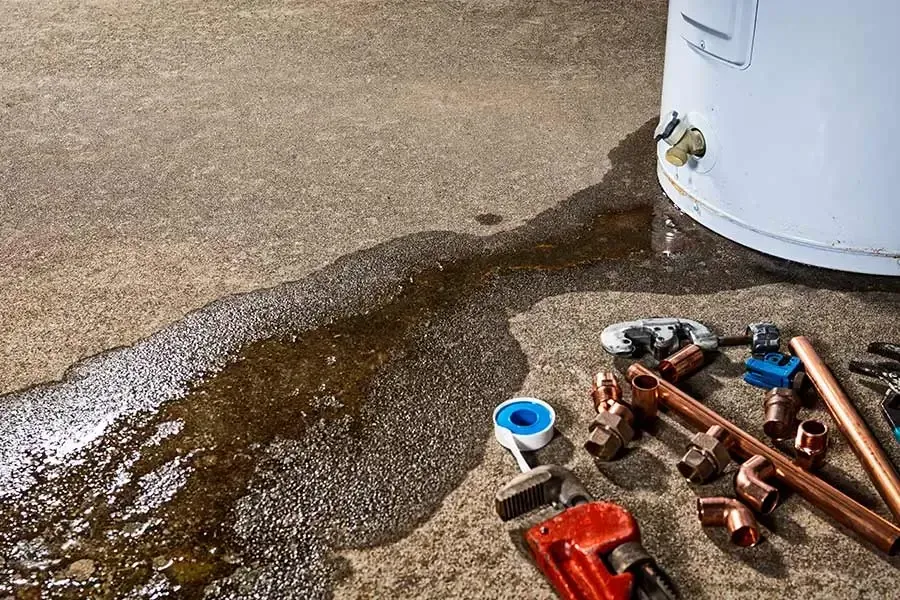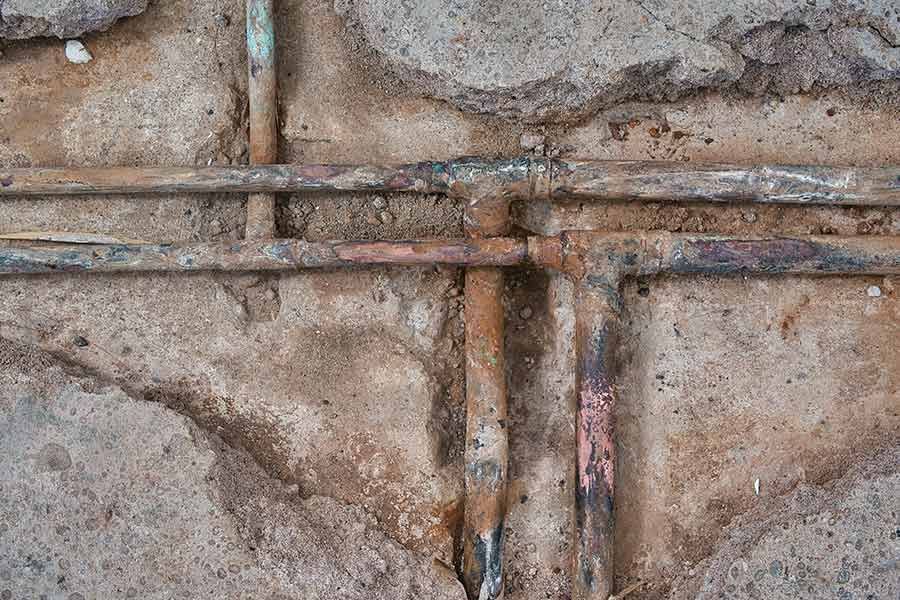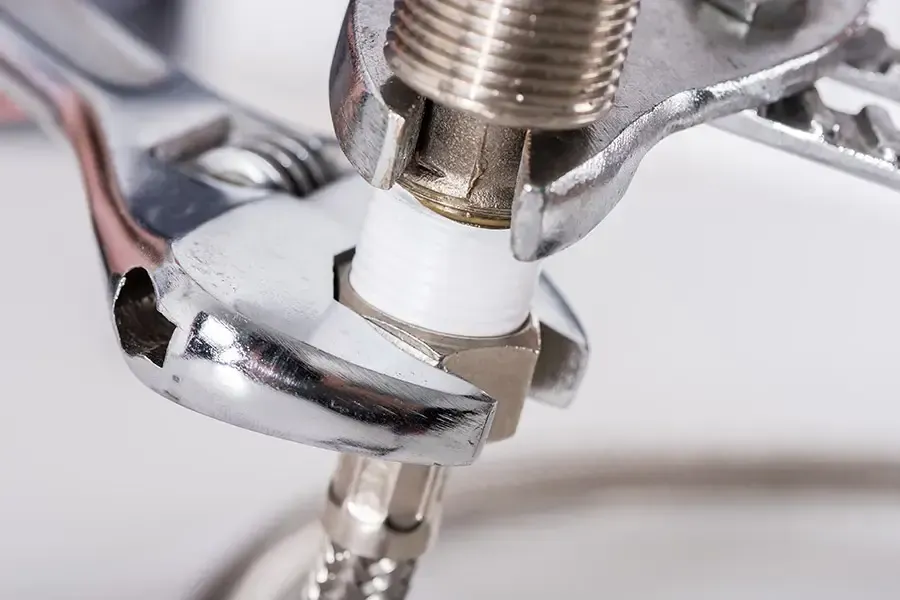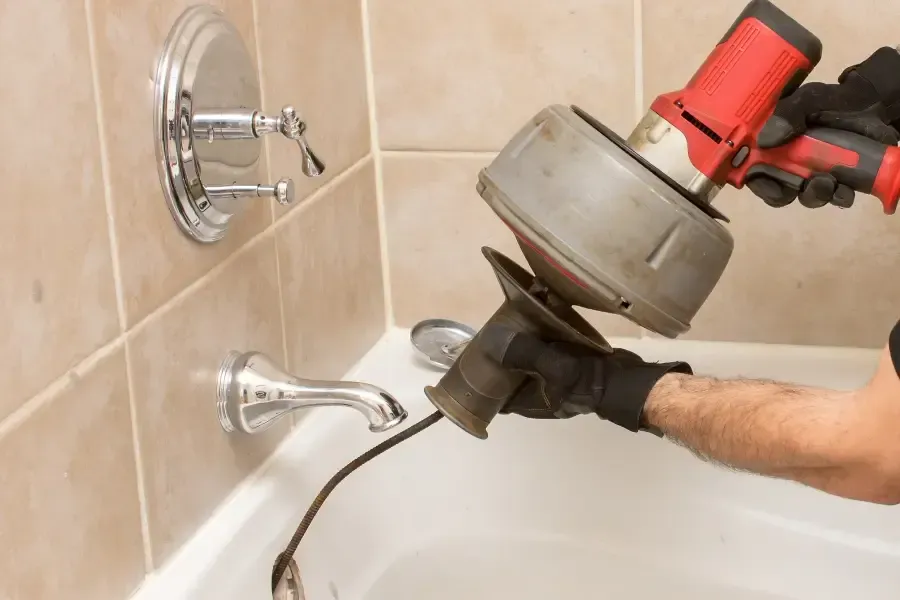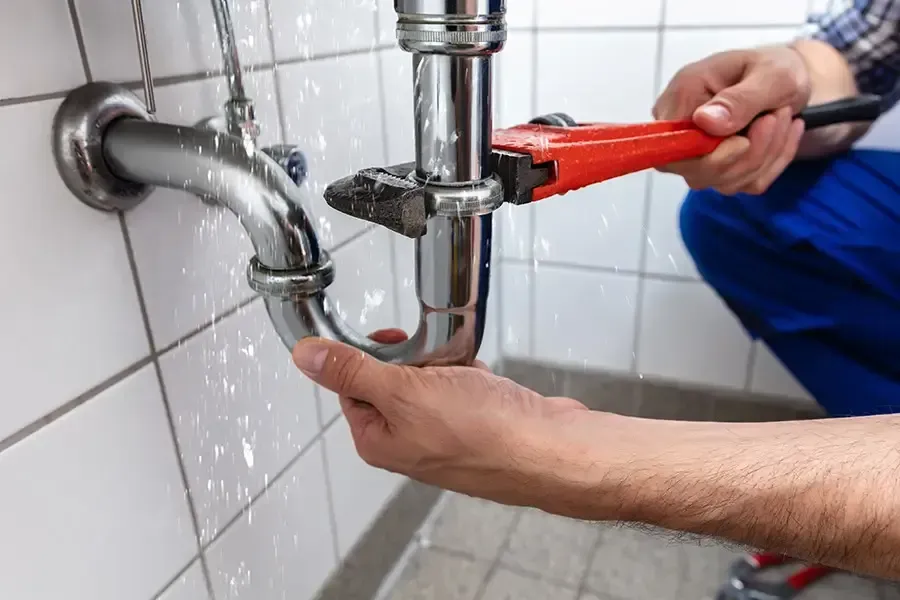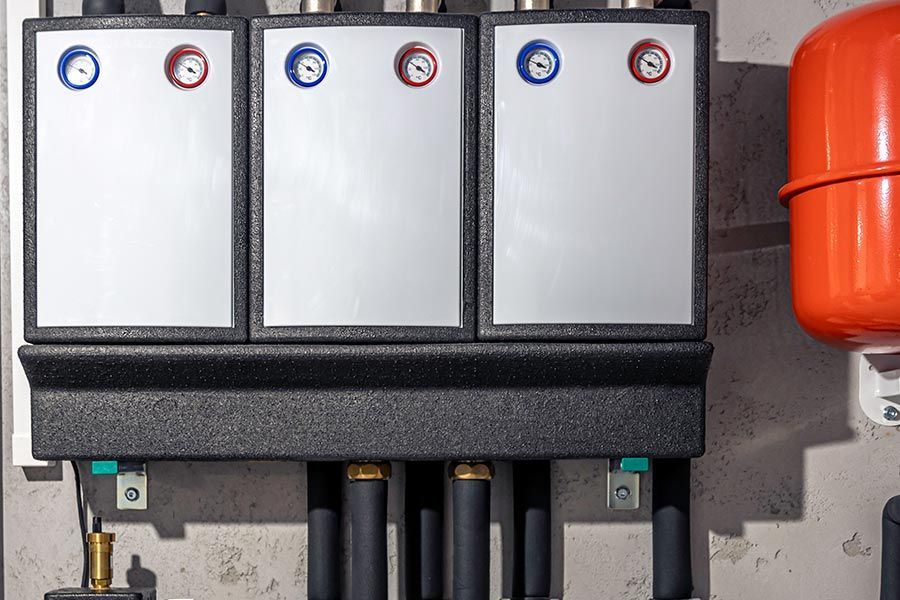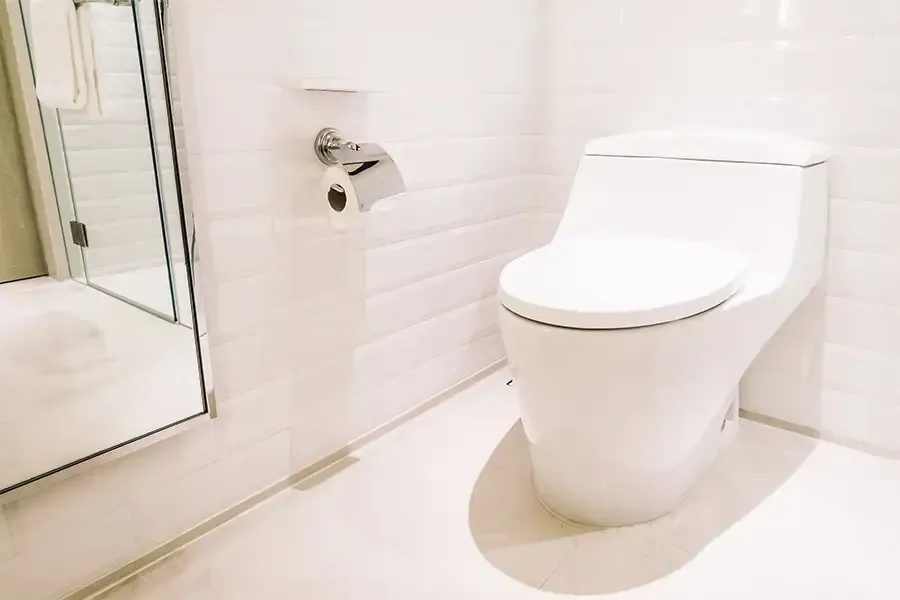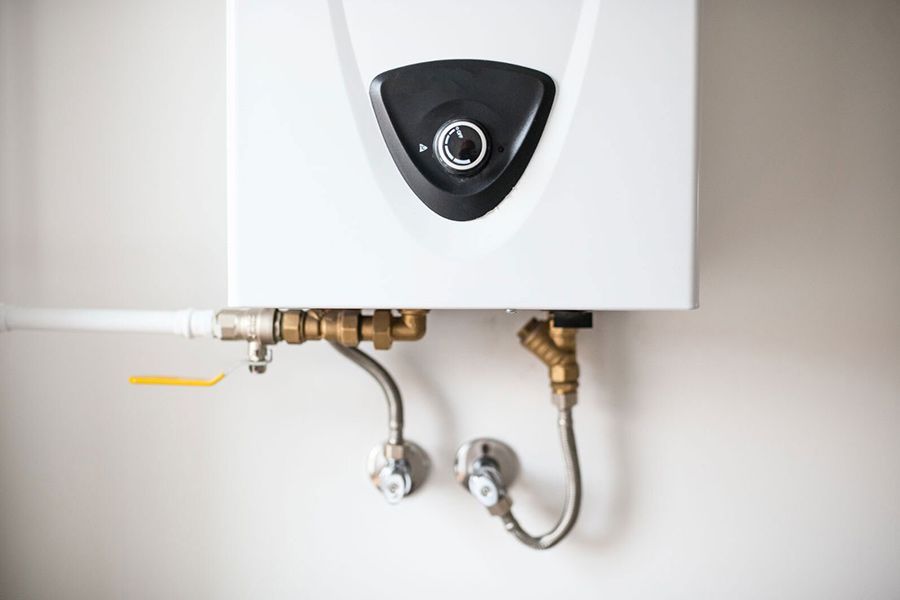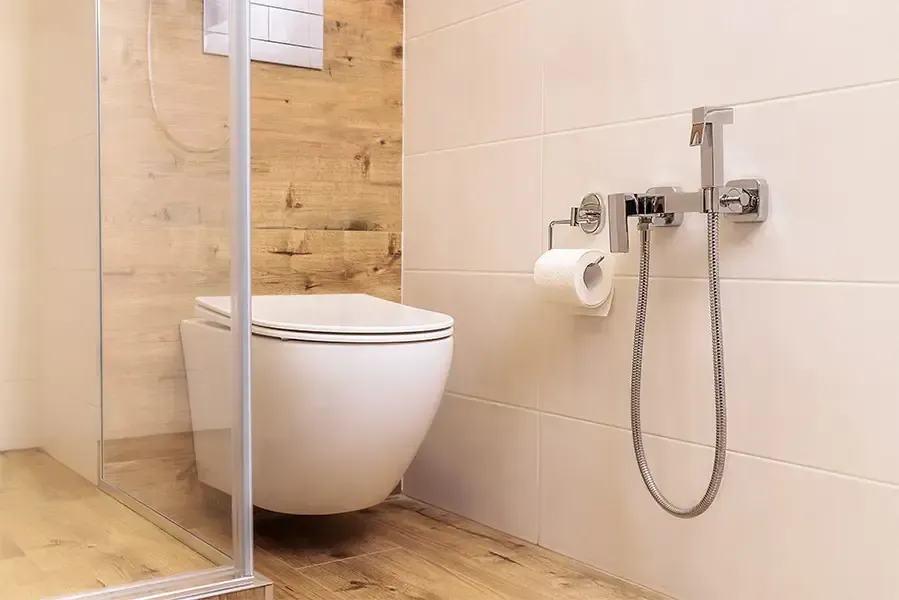We have 24 Hour Service!
How to Identify the Source of a Gas Leak in Your Cleveland Home
Natural gas is an efficient and clean method for powering various house appliances. However, wherever there are gas lines, there are risks of gas leaks. Leaks can cause catastrophic explosions, and gas exposure is harmful to your health. If you suspect you have a problem, you need to identify it immediately and call a professional for repair. This article will cover some basic tips on how to test a gas line for a leak and common signs of an issue.
Contact Formica Plumbing & Sewer Co. to schedule top-notch plumbing repair in Cleveland, OH!
Common Signs of Gas Leaks
Gas leaks are extremely dangerous; you should evacuate your premises and call a professional as soon as you are aware one exists. Below are some of the most common signs to look out for:
- Bad smells like sulfur or rotten eggs
- Excessive dust near gas lines
- Higher than average gas usage
- Inefficient gas appliances
- Dizziness or fatigue
- Difficulty sleeping
Gas leaks are more common than many might think and may go undetected. Staying vigilant is the key to quickly identifying an issue and avoiding danger.
Basic Gas Leak Detection Methods
Leaks usually come from faulty appliances or damaged gas lines, but they can be hard to pin down their exact location. If you've been trying to figure out how to test a gas line for a leak, use the methods below.
Use a Detector
The simplest method is to use a gas detector. Leak detectors come in handheld or mounted variants and emit a sound when they detect a leak. Detectors can measure the concentration of gas in the area, so look for areas with the highest numbers to pin down leak sources.
Follow Smells or Sounds
Gas produces a very noticeable smell, so you can sometimes just sniff out the leak source. Gas leaks are easiest to smell when they are coming from faulty appliances, like stoves, dryers, and water heaters. Leaks from appliances might create discolored patches behind them on walls, so keep an eye out for yellow or brown stains.
You may also be able to hear a small continuous hissing or whistling sound if you listen hard enough. Additionally, you may be able to feel pressure from a leak if you hold your hand up to the line.
Use the Soap Bubble Method
Very small leaks and holes can be difficult to identify by sight alone. If you think there is a leak you cannot see, try the soap bubble method. Get some soap solution in a spray bottle and squeeze a few sprays on the gas line. Small pinhole leaks should create soap bubbles so you can locate the source.
Look for Air Bubbles in Your Yard
Some homes have gas lines running through their front yard. If leaks are large enough, you might be able to see bubbling in mud or puddles near the leak. Pressure from leaks can also make the nearby soil loose and mushy. If you suspect there is a gas leak underneath your yard, don’t dig to locate it unless you call your gas provider and have them shut off service. Better yet, call a professional to do it for you and avoid the risk.
Check for Dying Plants
Gas is also toxic to plants, so look for signs of wilting or dying. Gas interferes with the plant's ability to absorb nutrients, causing it to prematurely die. Look for dead houseplants or for dead patches of grass or vegetation in your yard.
Check Your Pilot Lights
Gas appliance pilot lights should always burn a bright blue color. If they are burning yellow or orange, then it’s a sign there is a problem with your gas burner. Yellow and orange lights could also mean your pilot light is producing harmful carbon monoxide fumes, so contact a professional immediately if you notice they are discolored.
Can I Fix Gas Leaks On My Own?
Learning how to test a gas line for a leak is simple but you should never try to fix one on your own, no matter how minor it seems. It is incredibly easy to accidentally create gas explosions if you do not know what you are doing, and exposure can be harmful to your health. Typically, you must contact your gas company to shut off the supply to the damaged line. A professional in Cleveland can ensure your gas is safely shut off and that there are no accidental explosions.
How To Prevent Gas Leaks
Gas leaks can result from line damage due to construction or renovation, and they can also happen due to natural wear and tear. You can take the following steps to protect your gas lines and reduce the chance of springing a leak:
- Have a professional inspect your gas lines at least once every six months. A professional can identify potential leaks and problem areas.
- Visually inspect your gas lines every few months to check for leaks.
- Periodically check and test your gas meter. If you turn off the gas and the meter is still moving, you most likely have a leak.
- Low readings on your gas pressure gauge can also signal a leak.
- Replace soft lines and pipe fittings every five to six years. Hard gas lines can last much longer.
- Test the shutoff or isolation valve once every year and replace it every 10 years.
- Install carbon monoxide detectors near every gas-powered appliance and near your vents.
You can stay on top of your gas line maintenance by scheduling regular service from a professional like Formica.
Plumbing and Sewer Services in Cleveland You Can Rely On
Read our blog for guidance on how often your sump pump should run. Contact Formica Plumbing & Sewer Co. online or call today if you have any more questions on how to test a gas line for a leak or need gas line repair in Cleveland, OH! Trust us to provide you with the service you need.
Formica Plumbing and Sewer Co. provides courteous, friendly, affordable, and effective residential and commercial plumbing services.
OUR SERVICES
CONTACT INFO.
Formica Plumbing & Sewer Co.
1445 E 289th St, Wickliffe, OH 44092
Plumbing License # 47834
EMERGENCY SERVICE
AVAILABLE
All Rights Reserved | Formica Plumbing and Sewer Co.

